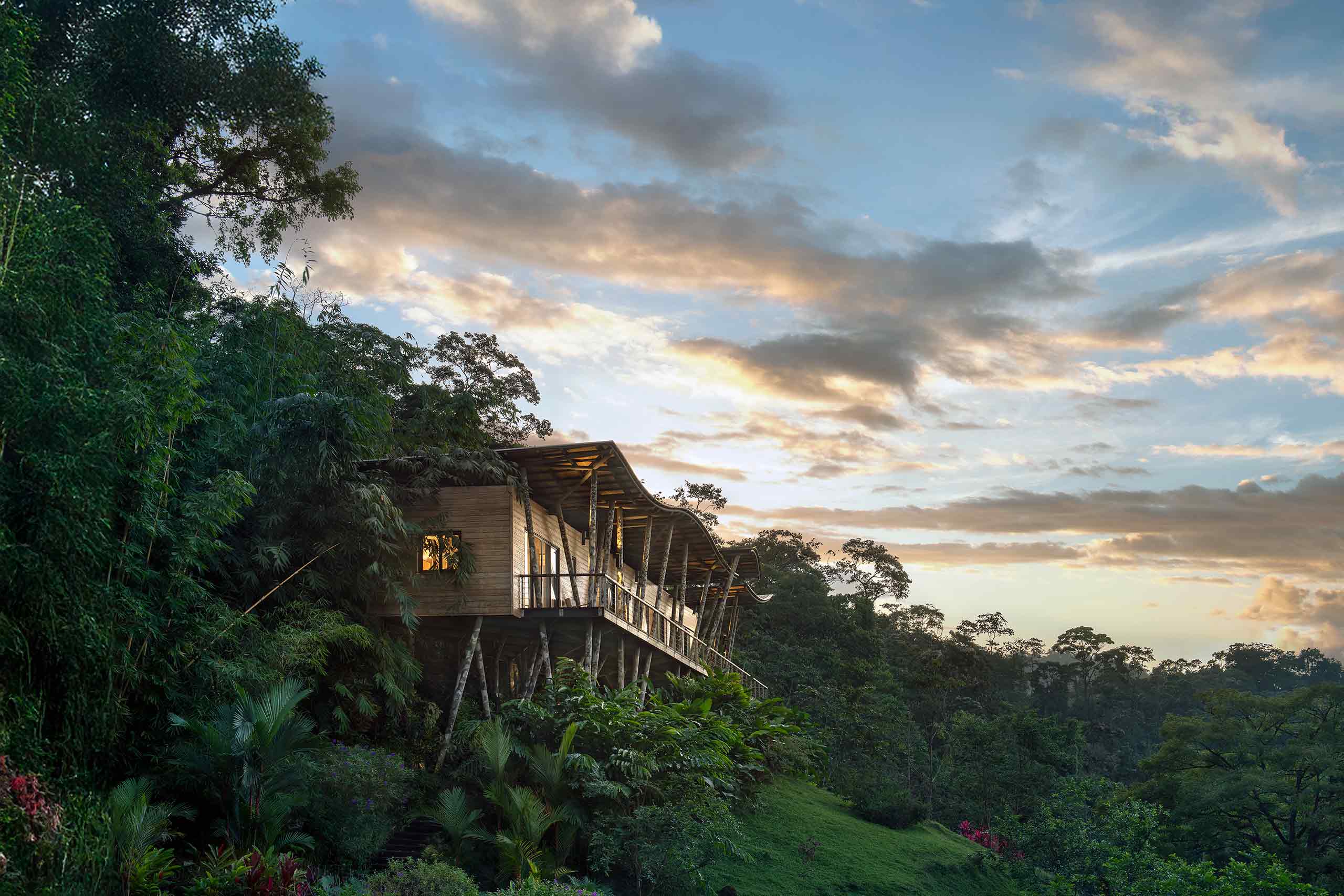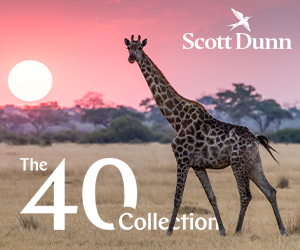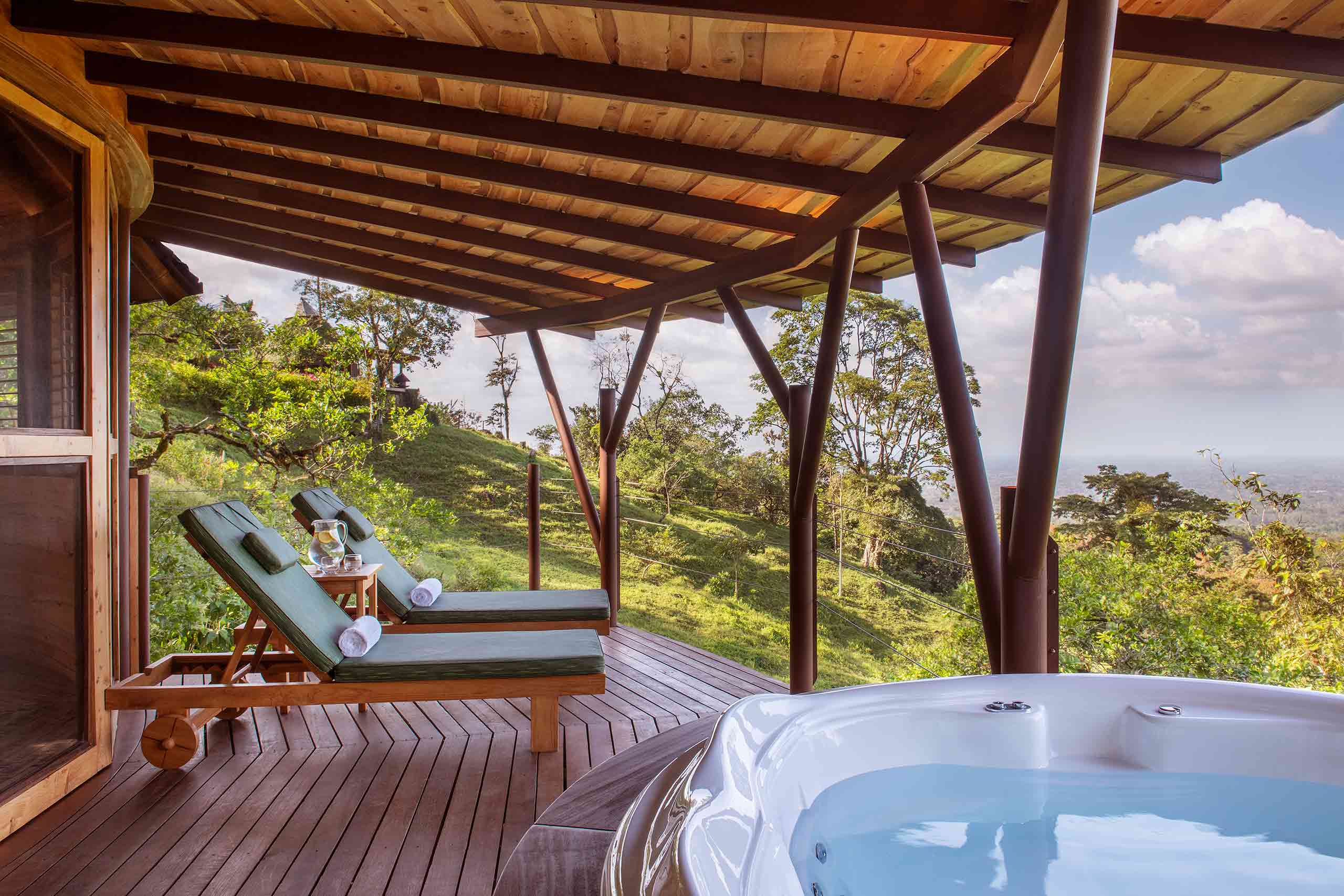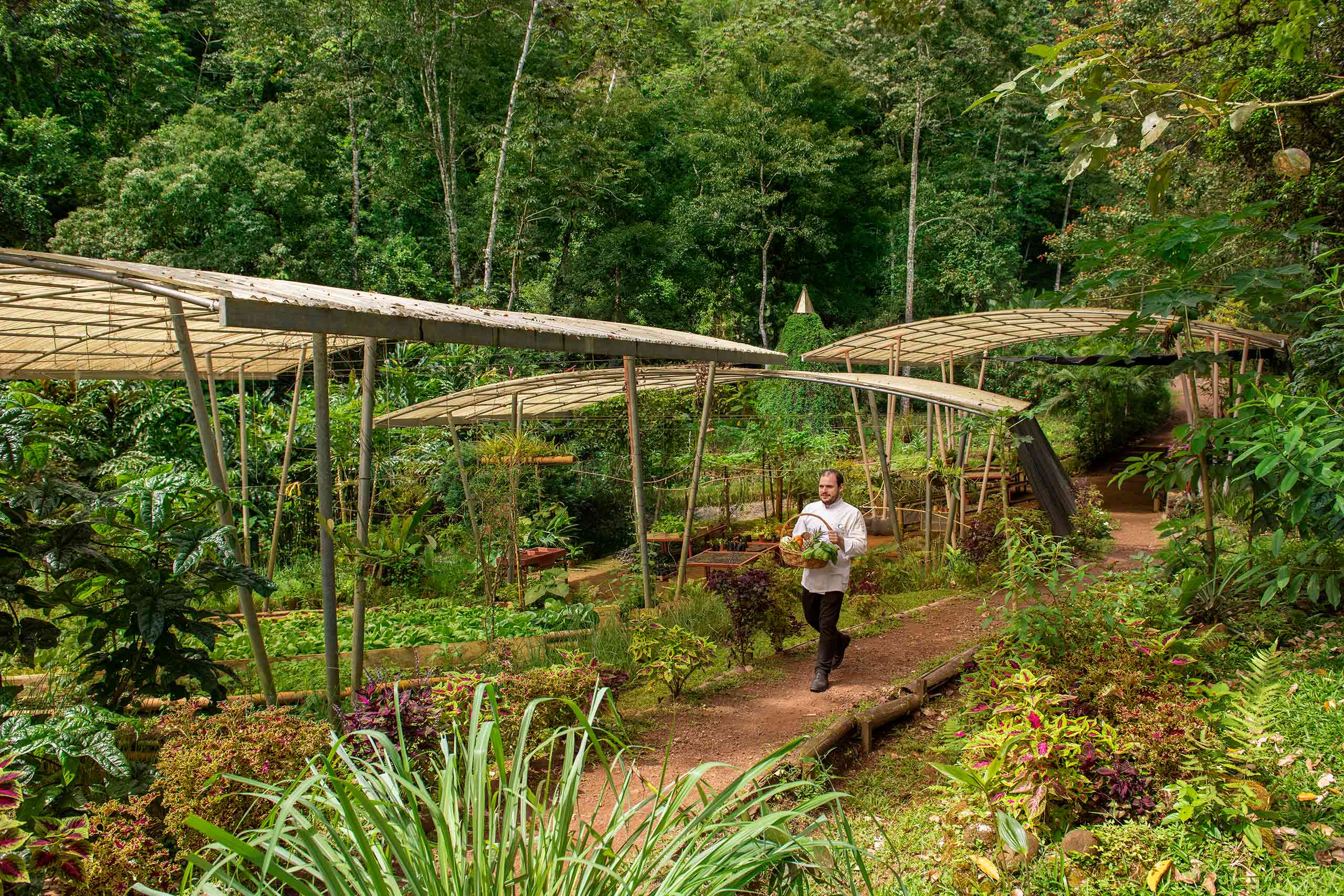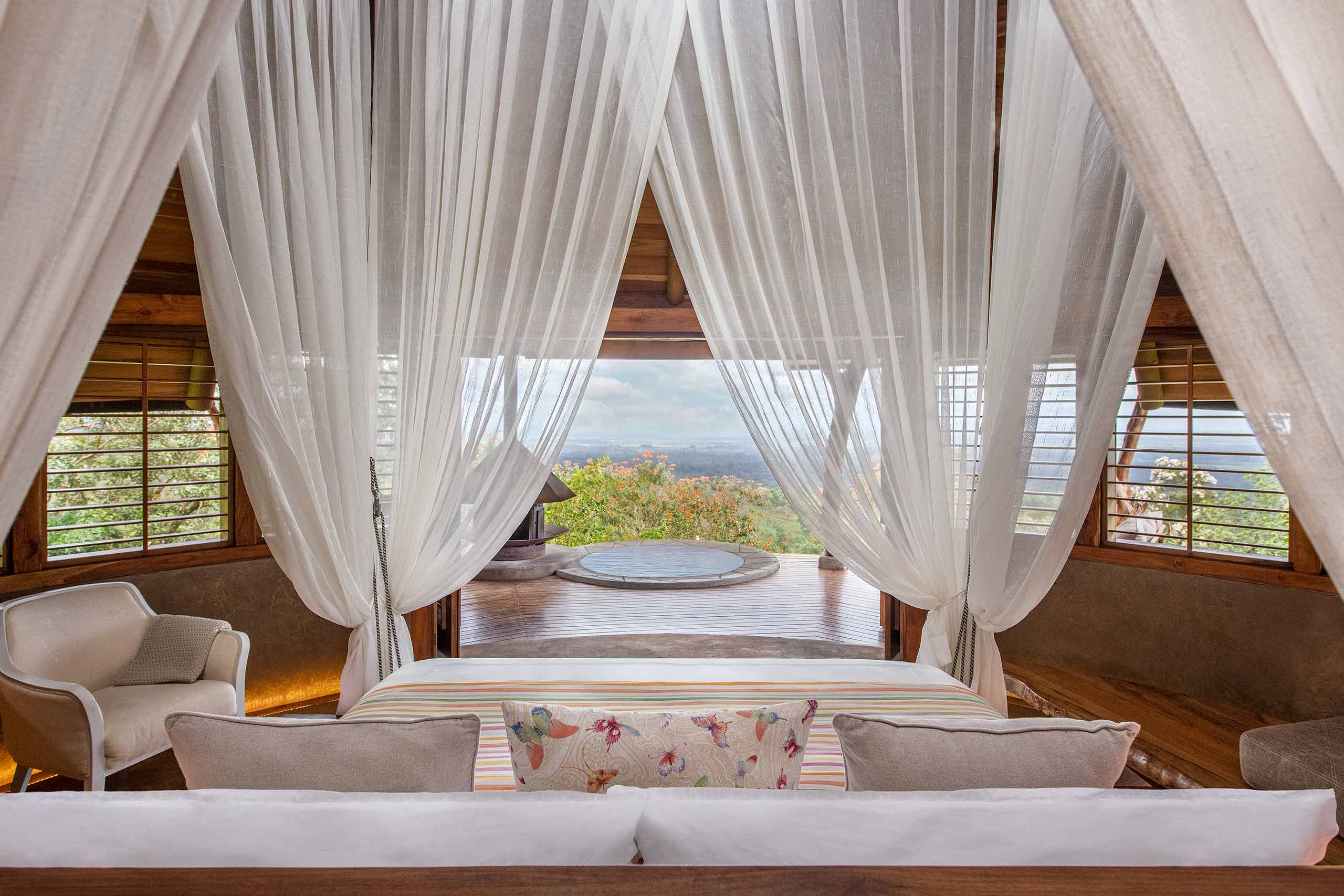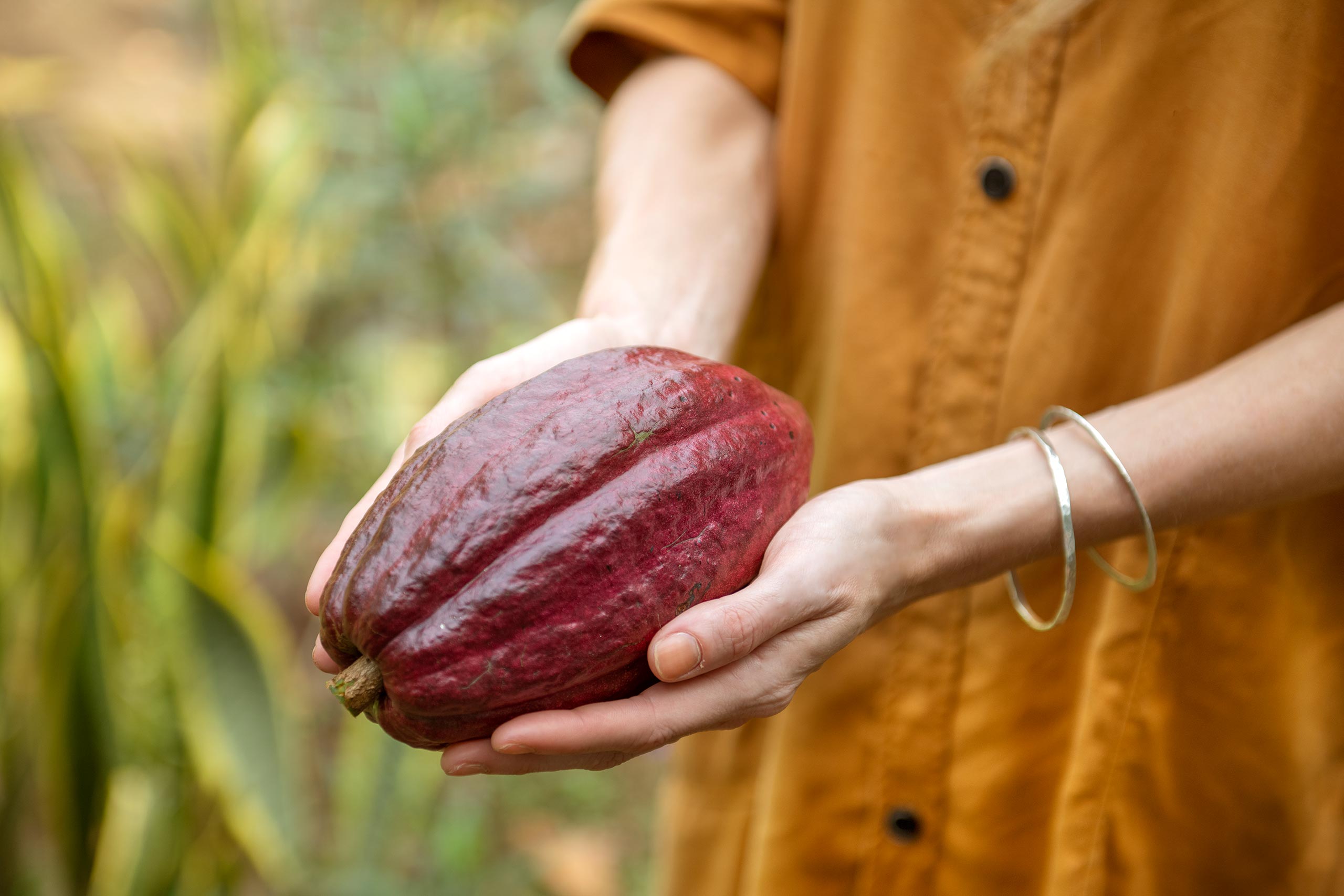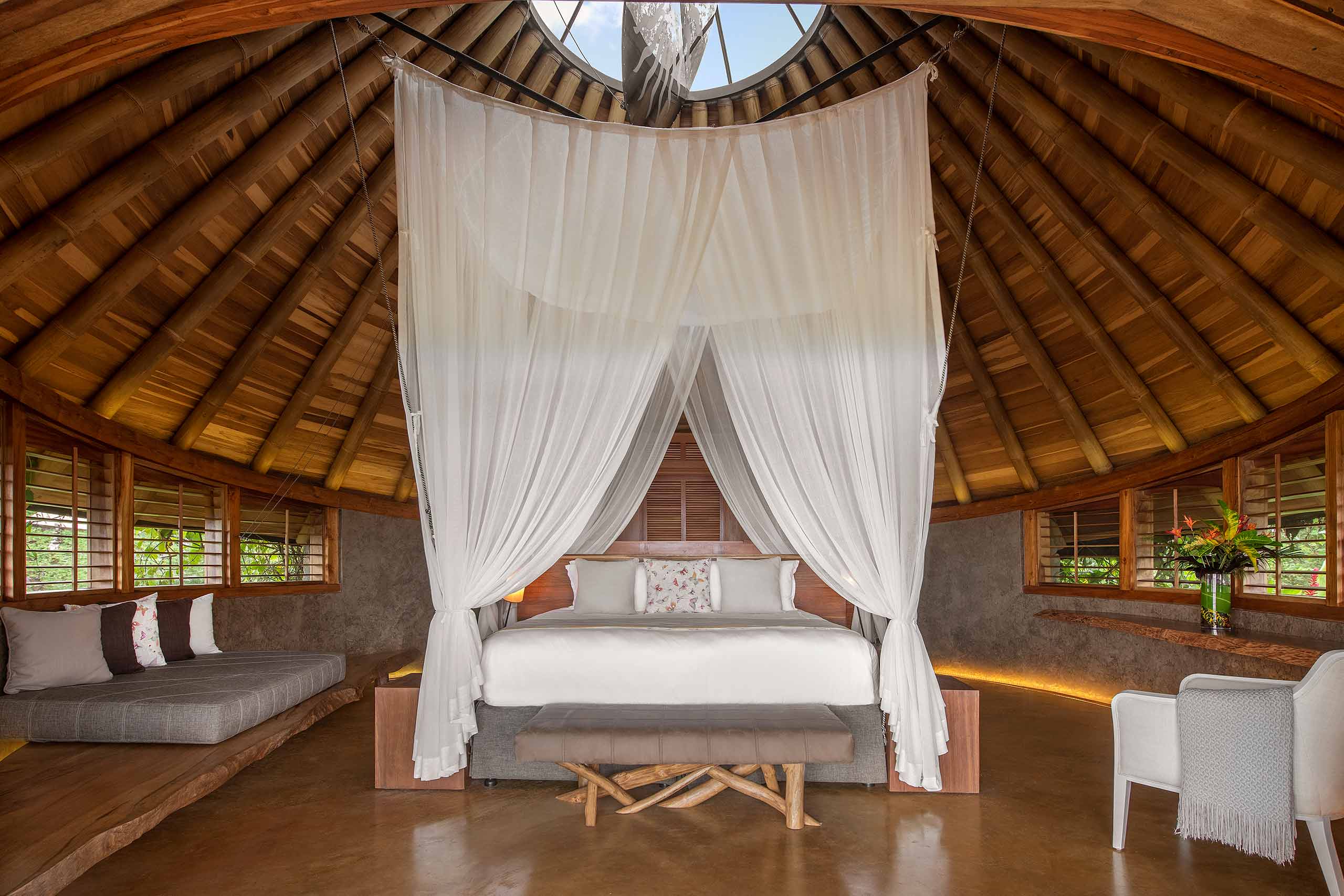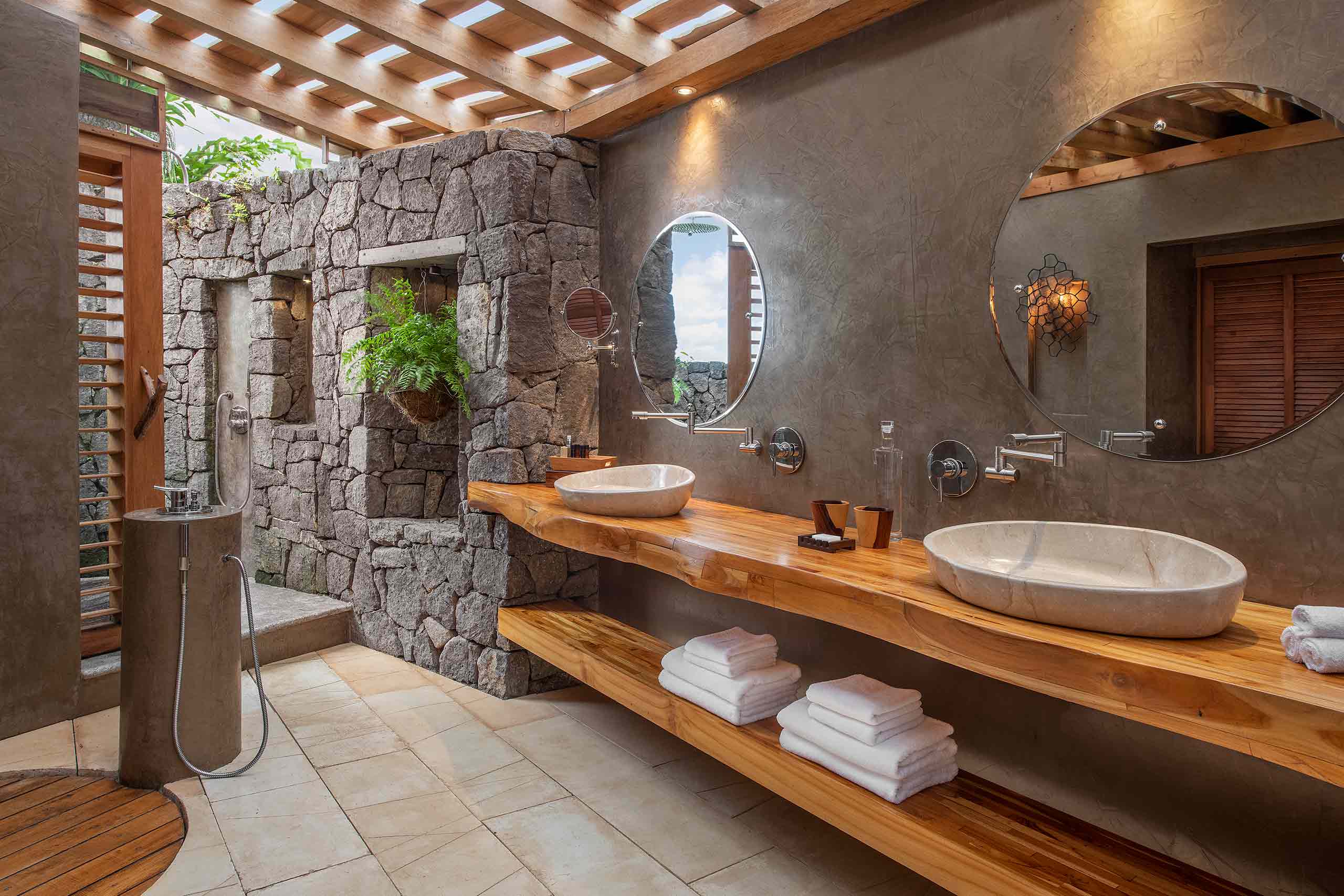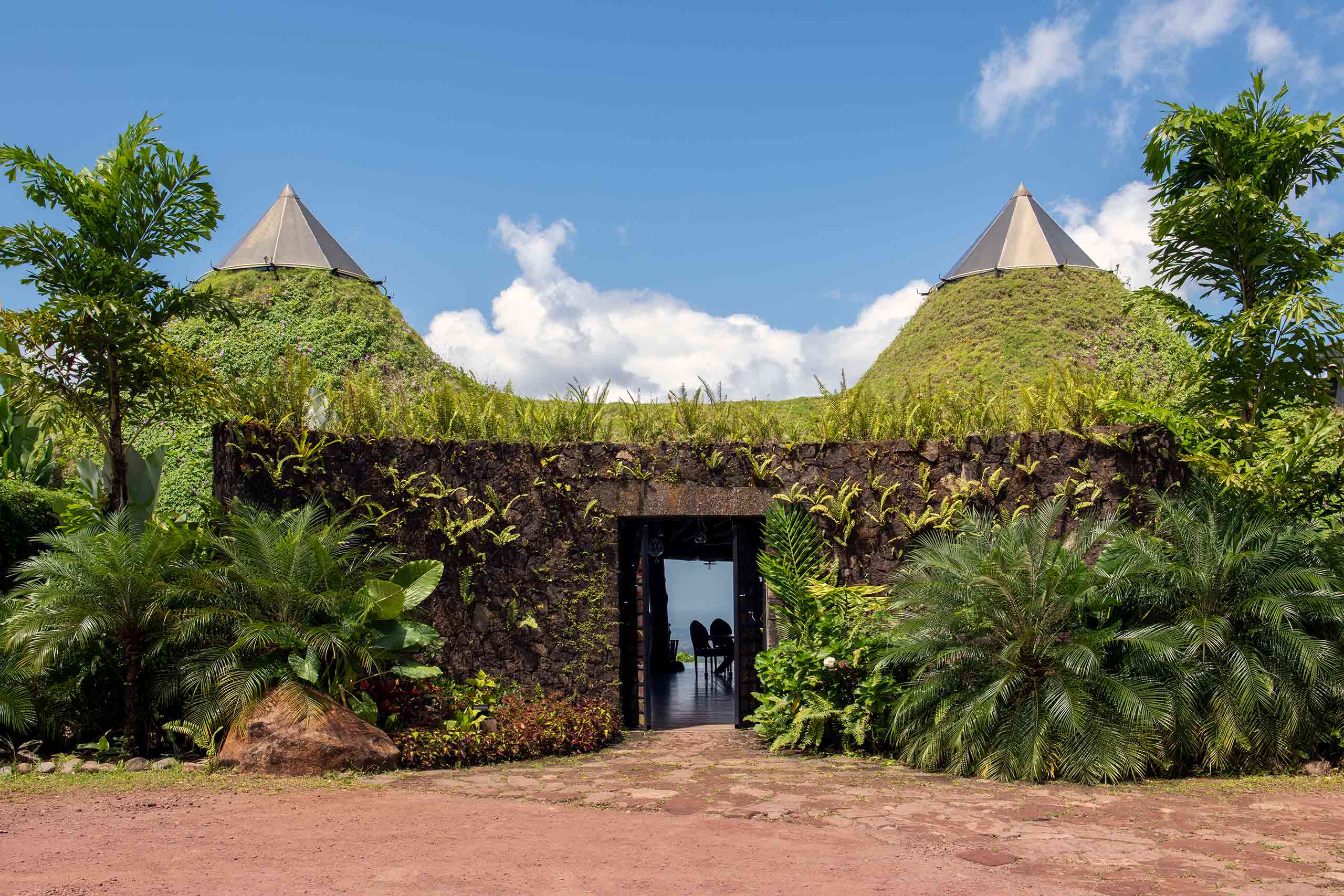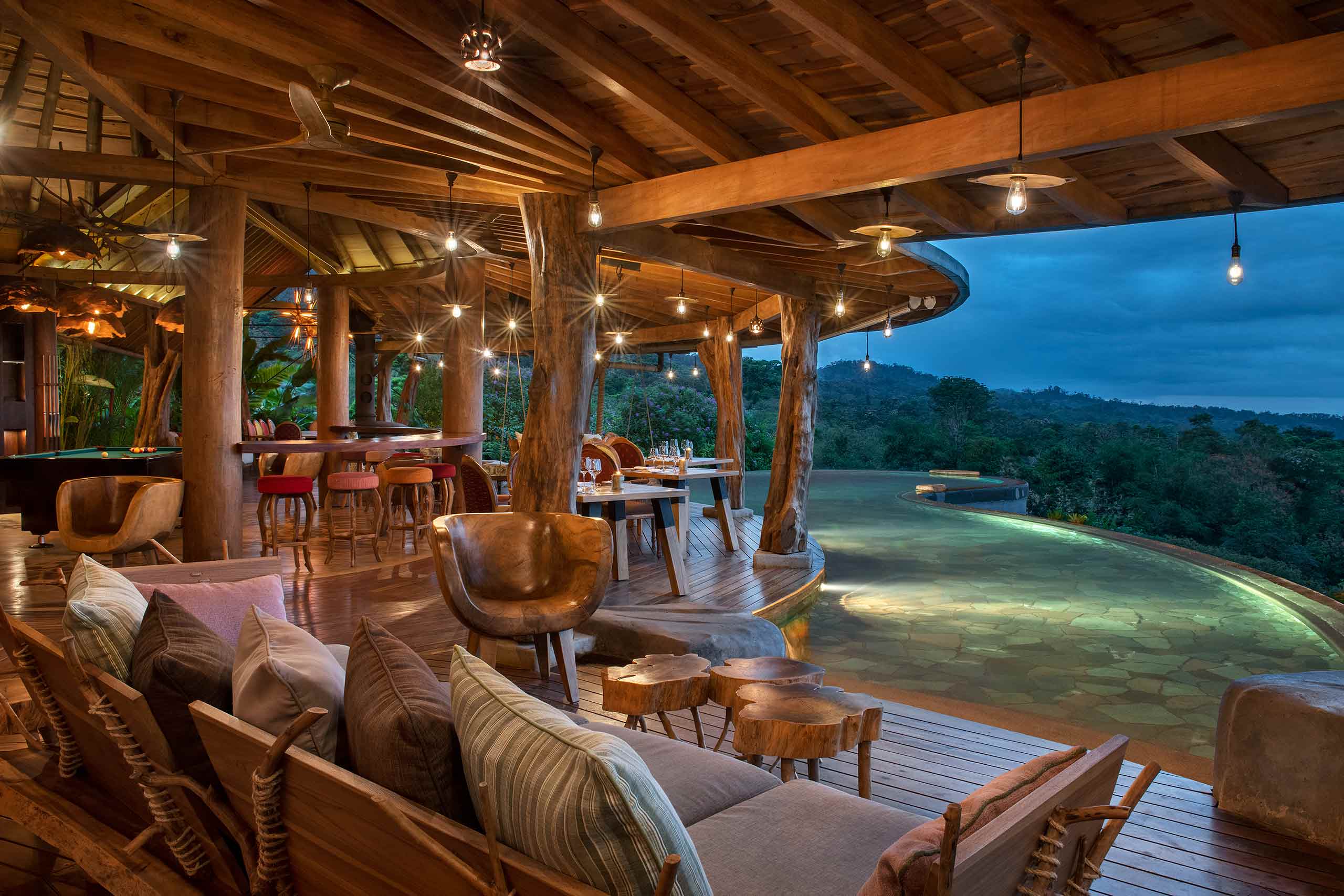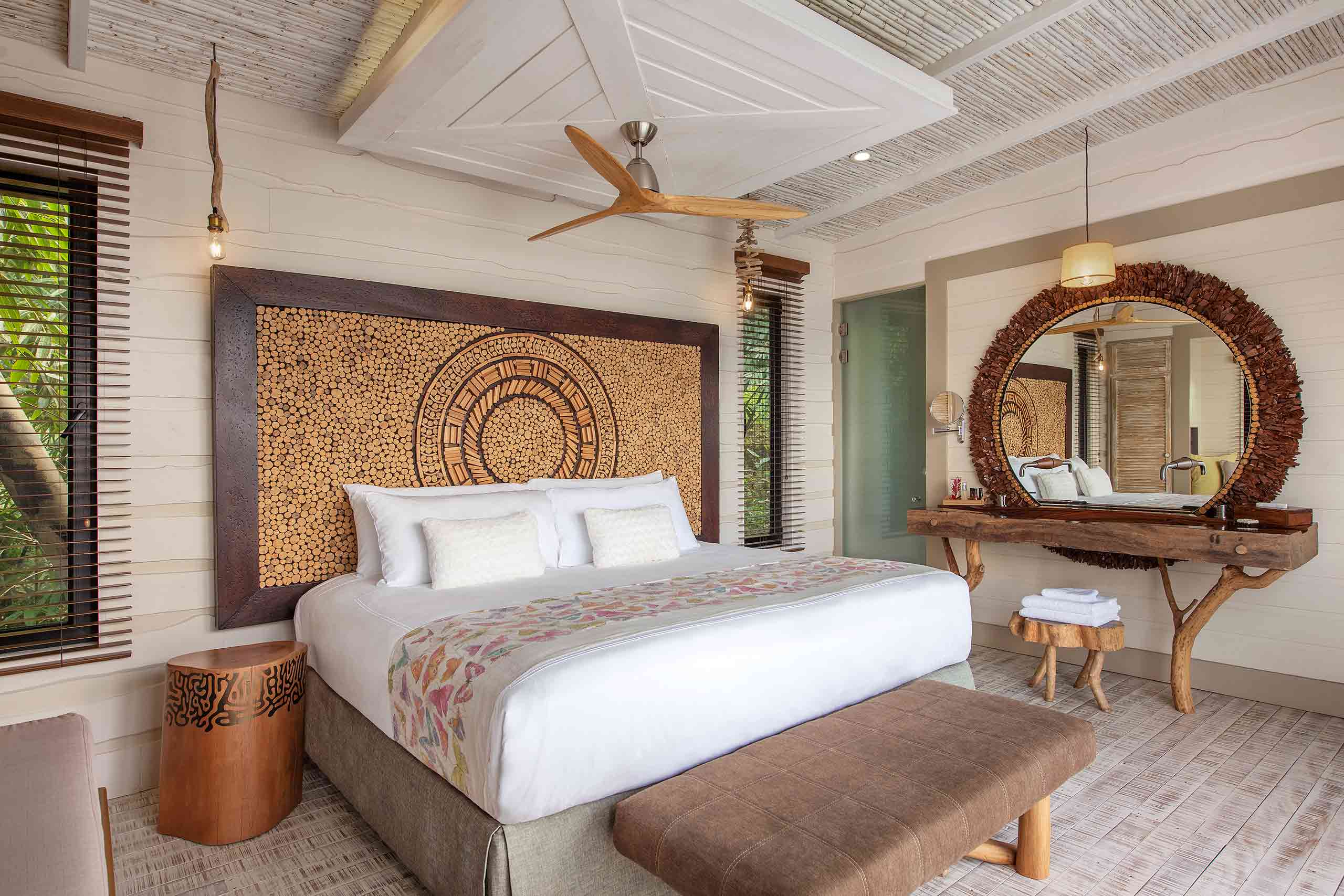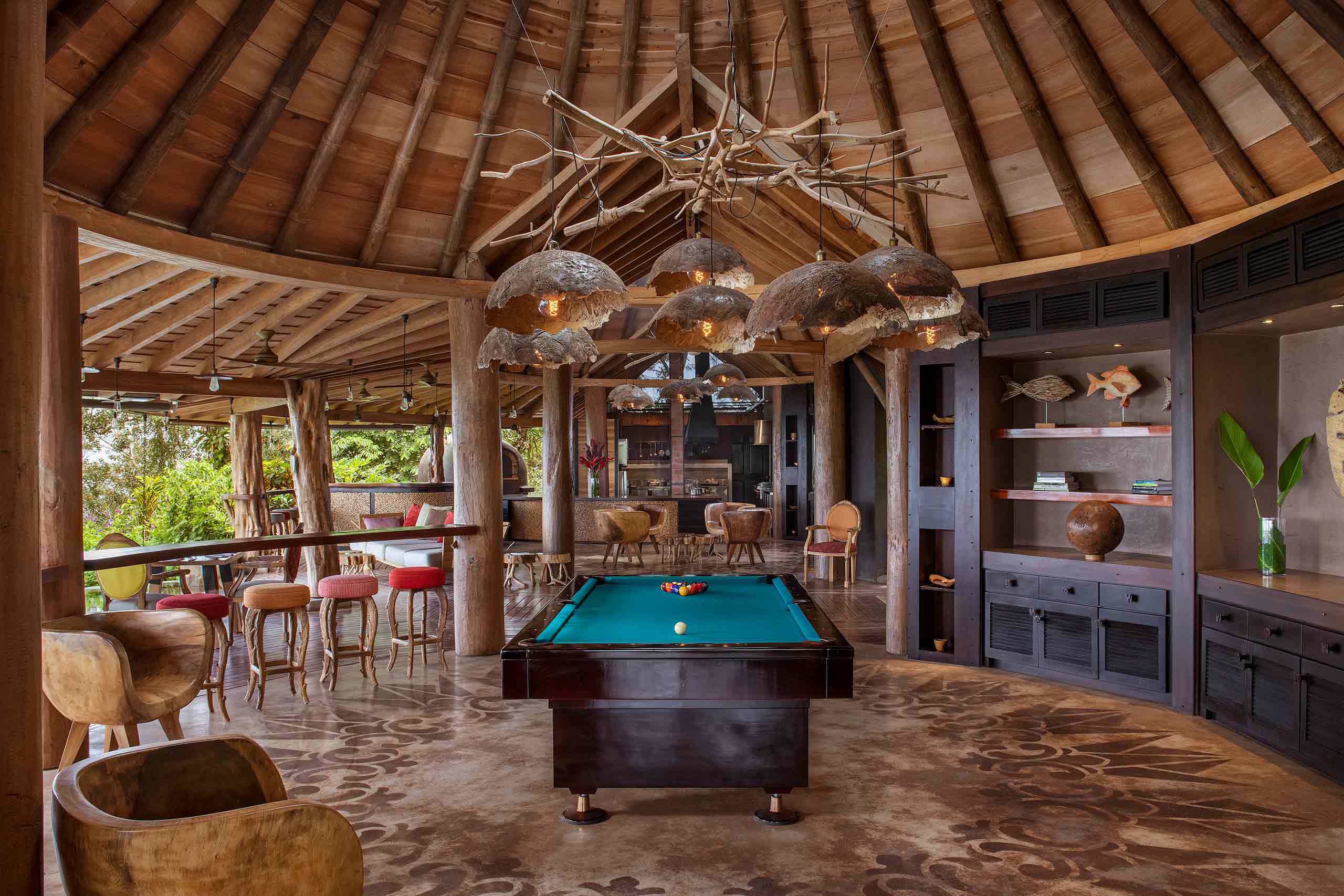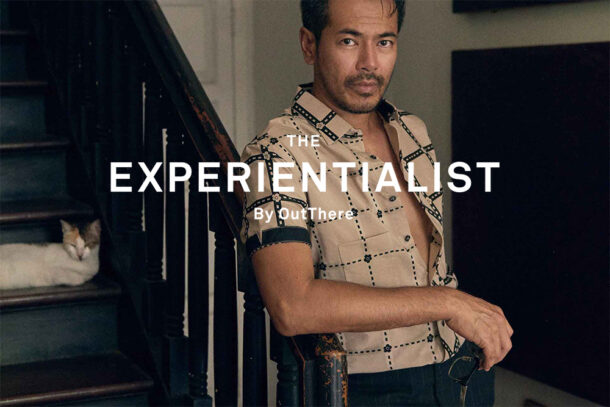Packing six per cent of the world’s biodiversity into 0.03 per cent of its land, Costa Rica delivers an extraordinary wilderness immersion. Stir in refined, French-fusion cuisine, luxurious ecolodges like Origins Lodge, and a wealth of activities, and you have an adventure that will not only reawaken all five senses, it will revitalise the spirit.
Flashlight in hand, I follow our naturalist guide Carlos as he leads us into the rainforest on a night-time nature hike. There’s no moonlight cutting through the thick foliage, and I’m quickly realising my folly in having Googled ‘venomous creatures’ before my arrival in Costa Rica. In the darkness, my mind conjures up images of pit vipers and tarantulas, and I wish I could forget that story about the soldier who woke to find a boa curled around his bedpost. But it’s too late to turn back to the main lodge – especially alone.
Earlier today, Carlos was my driver from Liberia airport to Origins, the luxury wilderness property hosting my adventure. It’s a two-hour drive into the rainforest and, with much of it over bumpy gravel roads, it’s little wonder locals call it a ‘Costa Rican massage’. As I bounced in rhythm with the tracks, I fired questions at Carlos about local fauna, especially poisonous snakes and spiders. Like most of the mountainside lodge’s staff, Carlos is a local, born and raised in the northern province of Alajuela, more than 400m (1,300ft) above sea level.

This story first appeared in The Experientialist Awards Issue 2025, available in print and digital.
Subscribe today or purchase a back copy via our online shop.
Carlos told me most snake bites happen to farmers with a machete who think they can outsmart a fer-de-lance, the most venomous pit viper. Fortunately, I’ve not packed a machete and, according to Carlos, no visitor has had a run-in with a fer-de-lance. As for tarantulas, he had no comment.
Of course, there’s always a first time, but that’s not something I’m going to think about as we proceed deeper into the jungle. With Carlos flashing his torch up into trees and down into the underbrush, five of us follow as he uncovers tiny amphibians, tree frogs and marine toads and a slew of creepy-crawlies and leaf-cutting ants underfoot.
The lion’s share of the lodge’s 111-acre property is dedicated conservation land, and home to more than 80 reptile species, as well as 70 species of mammals, including jaguars, pumas and ocelots. “Here, kitty, kitty,” someone calls, which prompts Carlos to recall the time he was driving two Americans through the night, only to realise that the dog crossing the bridge was actually an ocelot – his first and only sighting.
And now we all want to see an ocelot, or a tarantula, or maybe even the deadly fer-de-lance – at a distance, of course. We want to flirt with danger, then race back to the main lodge for late-night cocktails, which we do.
Some hours later, after enjoying a four-course meal of fine French cuisine fused with authentic indigenous flavours at Origins’ El Salto restaurant and gorging on views of the twin-cratered Tenorio volcano across the property’s tree-canopy-level infinity pool, I’m once again sweeping my flashlight back and forth on the path in front of me. I’m alone this time as I wander in the general direction of my private lodge. I’m relatively certain this is the path I followed that afternoon, but it’s so much darker now – and feeding time for so many species. There are noises all around me, rustling branches, the cacophony of howler monkeys, and insects that sound like the alarm your fridge sets off when left open. At last, I see the wooden sign for Mariola, my rainforest home, named after the indigenous bees that have no sting and make the sweetest honey, traits I want to believe are somehow connected to me.
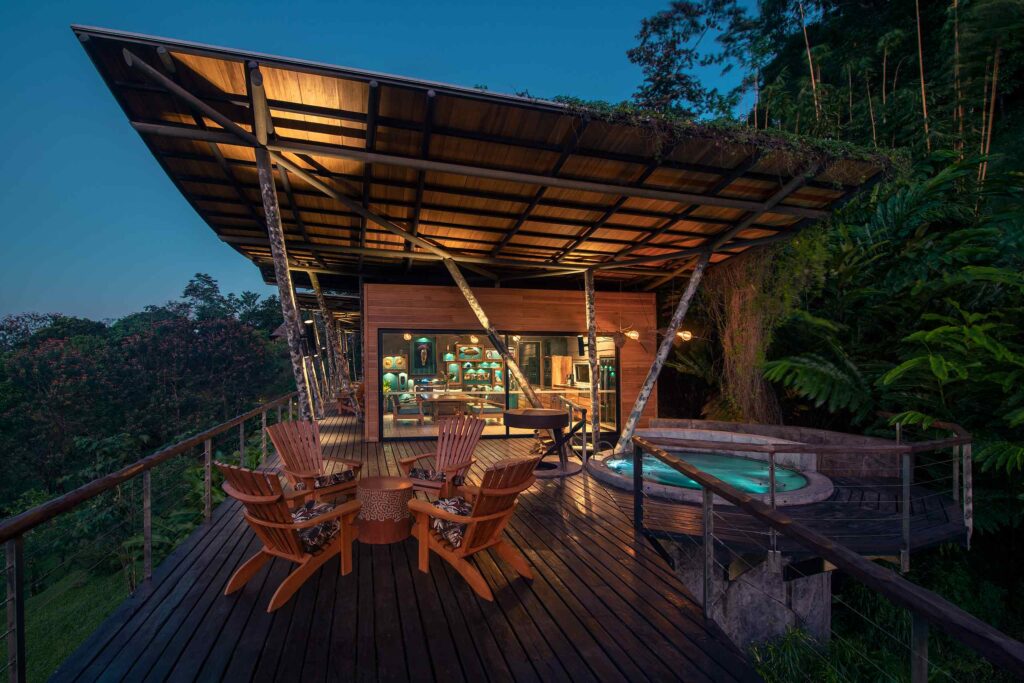
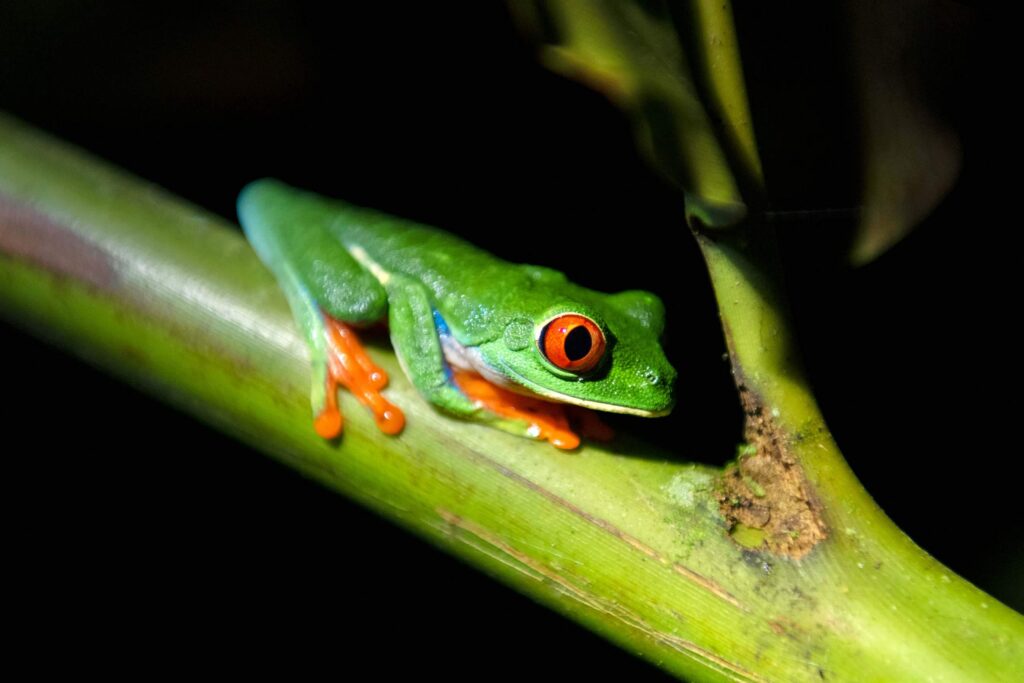
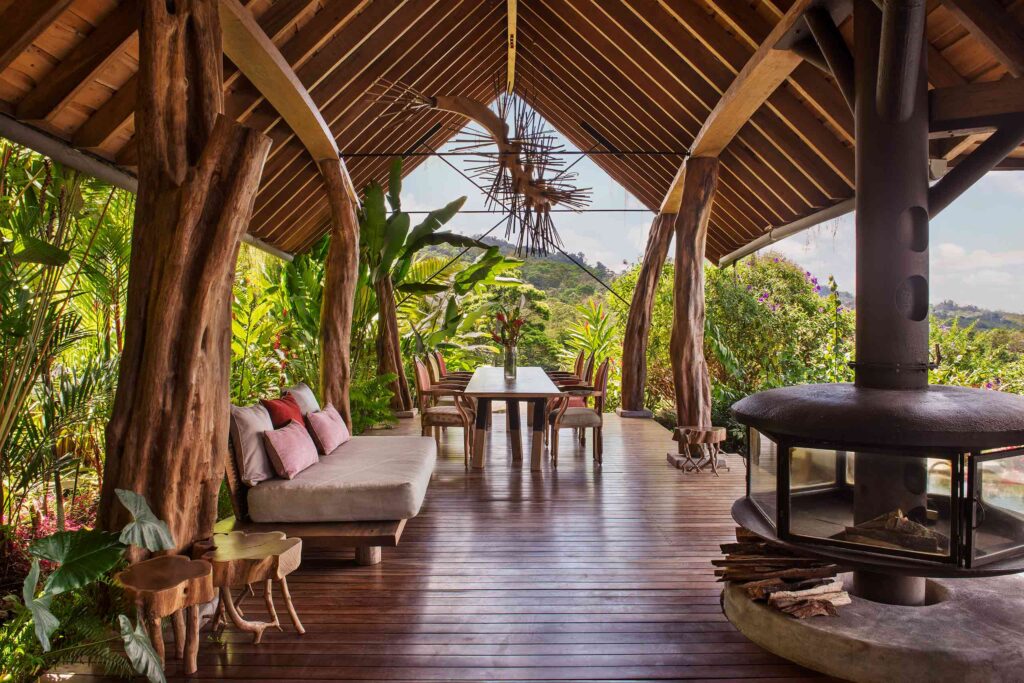
As I climb Mariola’s stone steps, I glimpse the embers of the wood-burning stove that heats the water in my terrace’s private plunge pool. “Well, why not?”, I think, and it’s not until I’m immersed in the warm water that I wonder if any other species might be lurking nearby, watching, waiting. I’m not so concerned about the 250 species of birds here, which represent 25 per cent of all the bird species in Costa Rica. There are also those 40 species of amphibians – and maybe we’re sharing the same plunge pool.
Before my arrival in Costa Rica, someone told me that the first night sleeping in the jungle can be a bit disconcerting. There are sounds quite unlike those of urban dwellings, a lot of beating wings and scuffling noises, squawks and muffled calls. My airy, large bungalow is built on a circular stone foundation that replicates the architectural style of the roundhouses of pre-Columbian indigenous people.
A conical roof, festooned in the pale purple flowers of Costa Rican nightshade vines, rises to a heavenly point with a skylight the housekeeper opens and closes twice daily to replace negative energy with positive.
In short, this bungalow has been cleansed – and my hand-crafted canopy bed is encircled by white muslin.
No mosquitoes are allowed inside and, honestly, I haven’t seen a single one inside Mariola, or any other insects for that matter. Outside, the wood-burning stove flickers in the dark, the seductive fragrance of pilón firewood permeating the bungalow and lingering in the linens. There’s nothing but sweet dreams ahead – at least until the birdsong choir commences with the first light of dawn.
It’s a jungle reveille, a chorus of bird calls and howler monkeys that heralds a new day. No earbuds can dull its clarion call. Opening the shutters, I take my cup of Costa Rican coffee out onto the terrace and sink into the plunge pool’s balmy waters. I’ve got a ringside seat in this rainforest amphitheatre with a 180° view of the twin volcanoes Miravalles and Tenorio and the verdant valley that leads to Lake Nicaragua.
As the avian orchestra tunes up, I study the birds that soar from tree to tree. Some bring to mind their velociraptor ancestors, and I see crested guans and yellow-throated toucans, black vultures and tiny green hummingbirds. Meanwhile, mariola bees are buzzing around a hive they’ve created inside one of the terrace’s wooden support columns.
Every creature is so busy that I feel slightly lazy lingering so long in the pool. There’s an early-morning yoga class on the Koora Yoga Deck, which is named after the native Maleku word for ‘tree’. So, after a shower in my volcanic-stone outdoor bathroom (the spacious adjoining indoor one can wait for night-time, I decide), I partake in sun salutations with panoramic jungle views before breakfast. The lodge’s small on-site farm, Pio-Pio Finca, has eight chickens and a cow named Margaret, who provide the restaurant with eggs and 13 litres of milk each day. Sugar cane from the garden is used to sweeten smoothies, juices and cocktails.
Fuelled by food and the energy of the rainforest, I join a group of guests and start the day’s hike to the Oro Waterfall (Gold Waterfall), just one of a huge range of on- and off-site adventure itineraries and wellness activities the lodge offers, from whitewater rafting and ziplining to a creative spa-treatment menu. According to our guide, Eduardo, the golden river water possesses health benefits, as do various plants to which he introduces us. It’s not even noon and already extremely humid in the rainforest.
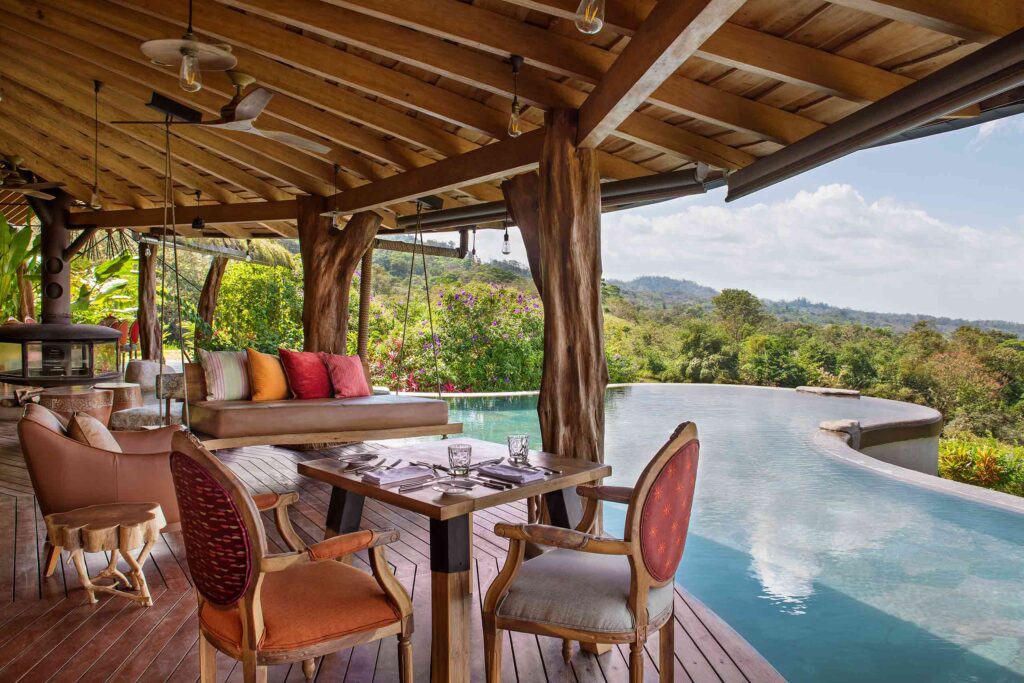
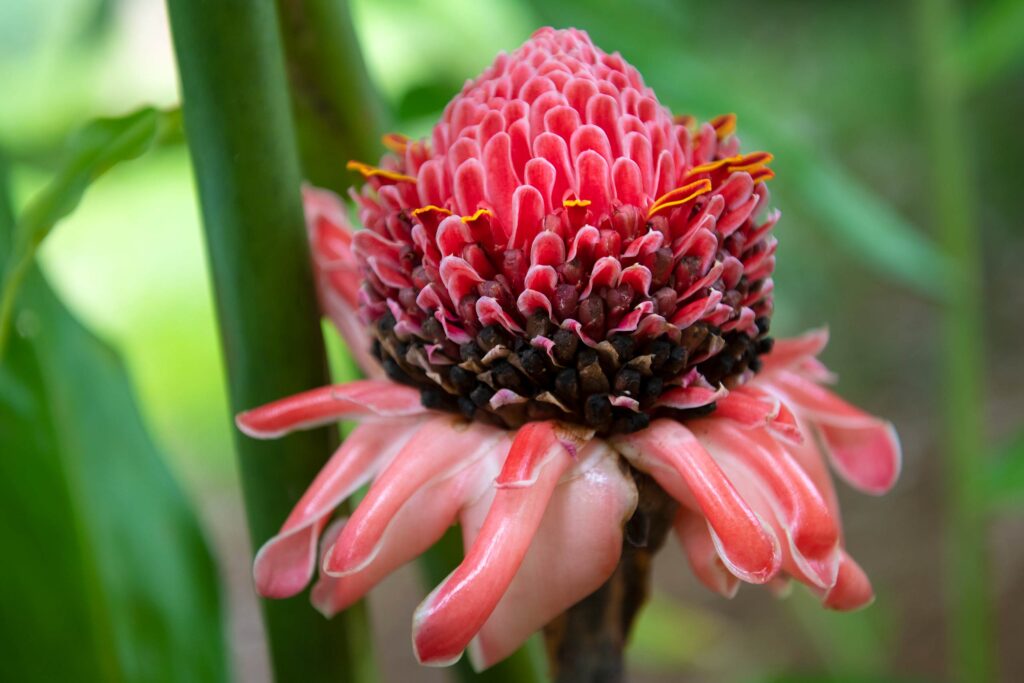
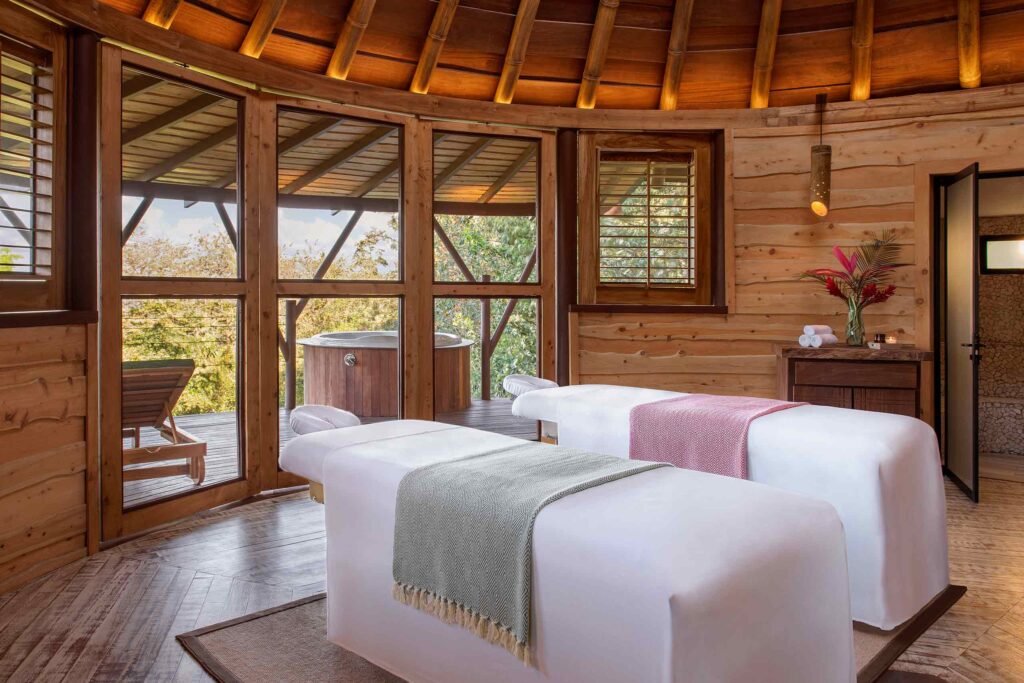
But onward we proceed, sweating buckets as we navigate moss-covered steps and narrow bridges. I’m no longer worrying about venomous creatures so much as dehydration. But there’s shade from the rainforest canopy above and, as we gradually ascend, the temperature starts to cool. By the time we arrive at the waterfall, we’re flushed with a sense of victory.
Six horses from Origins’ vetiver-covered stables await us at the top of the Oro Waterfall, and we make the trek back down on horseback. Mine is named Gitana, and she’s a sweet mare who quickly recognises that she makes better decisions than the equestrian on her back. Once Gitana twigs that I’m as ready as she is to return, she gallops us up and over hills and back to her home.
With Gitana now stabled, I retreat to my sanctuary at Mariola and sink into my plunge pool. I watch birds and bees. I float in the water. I sip lemongrass iced tea. And it dawns on me that for all its stylish safari lodge meets treehouse chic architecture and design, its polished friendly service and exemplary commitments to sustainability and indigenous culture, for me Origins’ defining achievement is in gently but fully reawakening its guests’ five senses to each moment they’re there – through the refined flavours of its food, the dazzling flora and fauna, the chorus of birdsong, the flower-fragranced air and the cool touch of a forest breeze on the skin.
Photography courtesy of Origins Lodge


